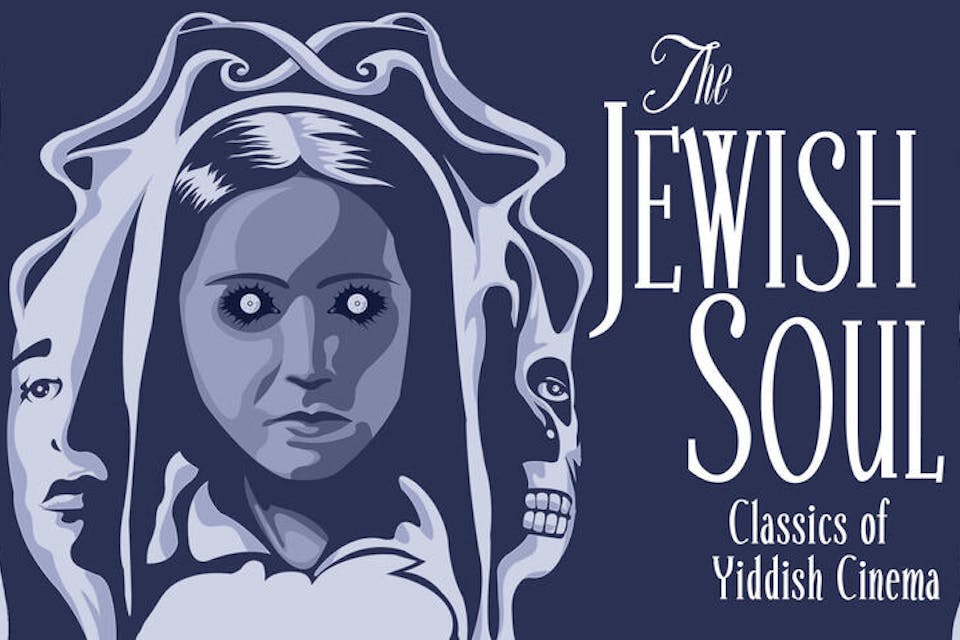
April 19, 2021
Yiddish Cinema Beyond the Shtetl
The Jewish Soul: Classics of Yiddish Cinema, a recent collection from a major distributor, adds to the canon of Jewish movies in fascinating new ways.
While the immigrant Jewish roots of American film have long been acknowledged, what remains forgotten is that there once existed a distinctive Yiddish-language cinema. Centered in pre-war Poland and the United States, it grew out of both experimental and popular theater, drawing on avantgarde and vaudeville traditions alike. Yiddish film was a bridge linking the cinematic innovations of the 1920s and 30s, from Berlin to Moscow to Hollywood, to the world of Yiddish literature, politics, and stage. With cinematic influences ranging from German Expressionism to Soviet film of the 1920s to mainstream musical comedy, Yiddish cinema is a gem to be rediscovered. While their original audience was naturally Yiddish speakers, in their 1930s heyday these movies ran in theaters throughout New York and beyond and were reviewed not just in the Yiddish press but in major newspapers like the New York Times and New York Herald Tribune. The history of Yiddish cinema, in other words, cannot be separated from that of film as a whole.
We should thus be grateful for Kino Lorber’s recent Blu-Ray and streaming release of “The Jewish Soul: Ten Classics of Yiddish Cinema,” the first collection from a major film and video distributor devoted to this forgotten body of work. Kino Lorber, which fully remastered the films and added new commentaries and subtitle translations, makes the case for these films as not just “precious documents of a vanishing culture, but a fascinating genre unto itself.”
While exposing non-Yiddish-speaking audiences to films that are valuable works in their own right, the collection exposes the thread connecting Yiddish cinema to the history of American and European movies more broadly. It also provides a new perspective on how Jews should relate to the East European past—a question that, given such recent novels as Max Gross’s The Lost Shtetl and movies like Seth Rogen’s American Pickle, doesn’t seem to be going away.